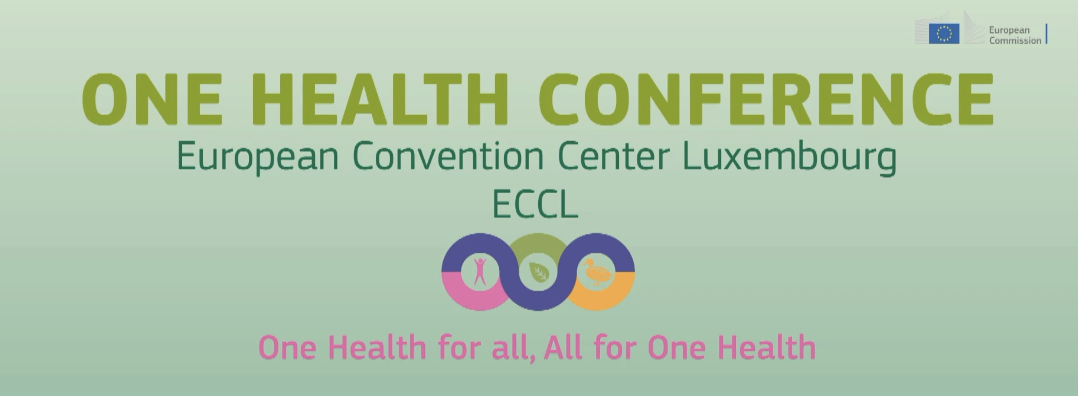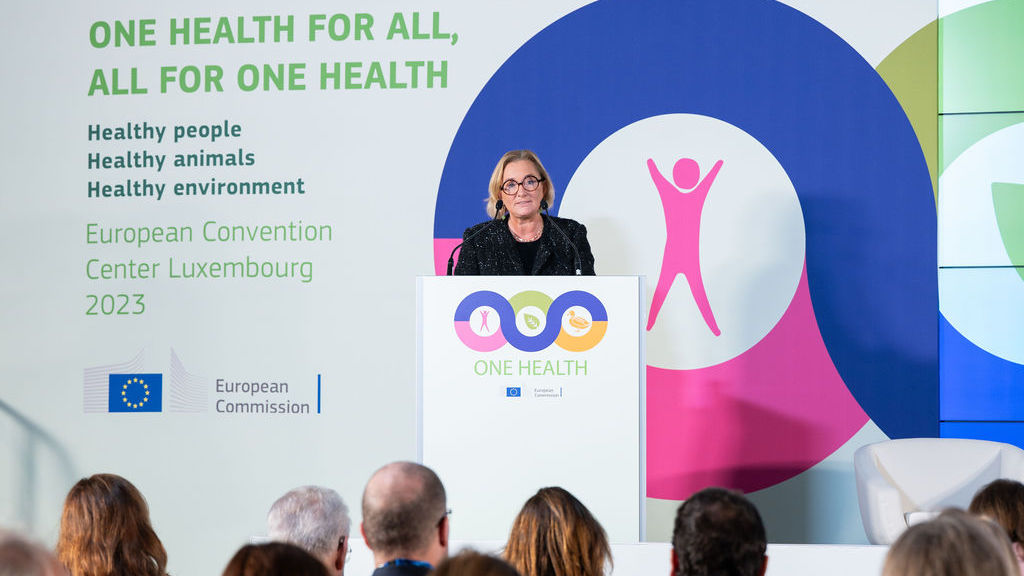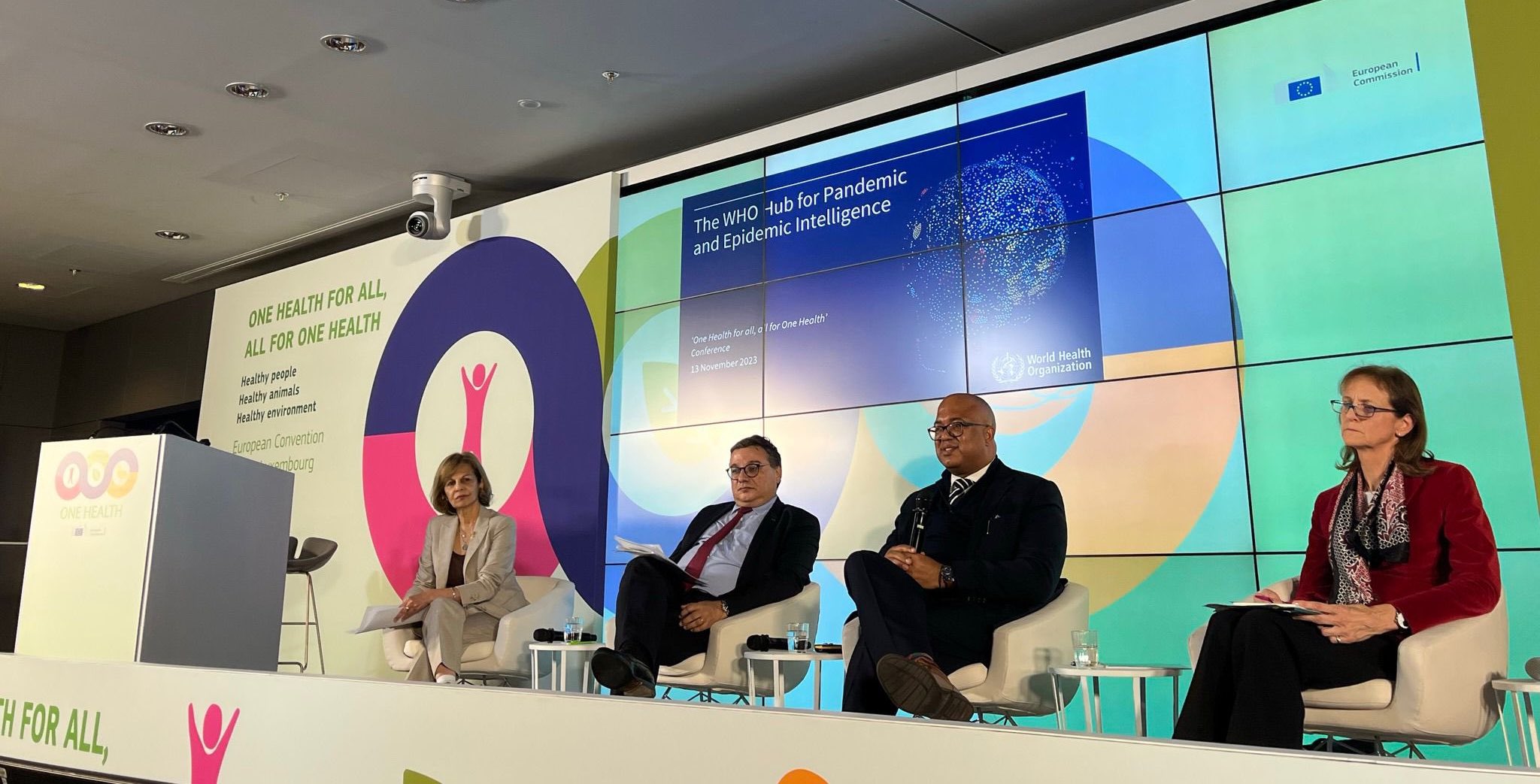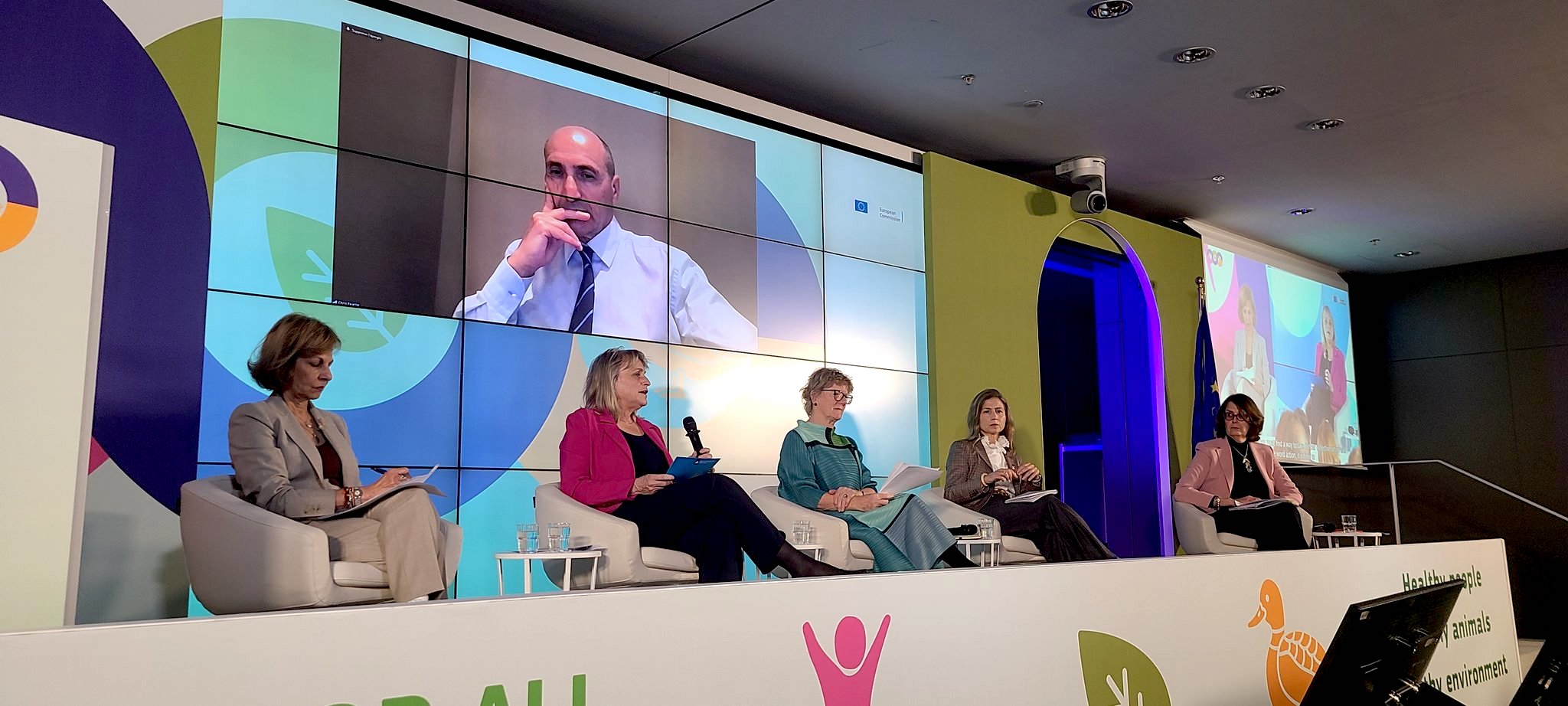
EU One Health Conference
The Wildlife Conservation Society (WCS) participated in the ‘One Health for All, All for One Health' conference organised by the Directorate General for Health and Food Safety (DG SANTE) of the European Commission on 13th November 2023 in Luxembourg to take stock together and to discuss the future of ‘One Health’ in Europe.
The recent epidemics and pandemics of zoonotic origin, in particular COVID-19, have made it unmistakably clear that human, animal, plant and environmental health cannot be dealt with separately, but need to be addressed in a ‘One Health’ approach. Their interdependencies need to be better acknowledged and require work at the interfaces in a multisectoral, transdisciplinary and an integrated approach. Mainstreaming ‘One Health’ means that we can better prevent, predict, prepare for, detect, and respond to global health threats at both global and EU level. Read more
The conference was structured around three thematic sessions:
- The triangle of climate change, environment, and health
- Surveillance and early warning systems
- Antimicrobial resistance
Speakers included, among others:
- Ms. Paulette Lenert, Deputy Prime Minister and Health Minister of Luxembourg
- Ms. Stella Kyriakides, European Commissioner for Health and Food Safety
- Ms. Sandra Gallina, Director General, DG Health and Food Safety, European Commission
- Dr. Maggie De Block, Chair of the WHO European Technical Advisory Group for One Health, Member of the UN Global Leaders Group on antimicrobial resistance, former Belgian Minister for Social Affairs and Public Health, and Asylum and Migration
- Ms. Loyce Pace, MPH, Assistant Secretary for Global Affairs, U.S. Department of Health and Human Services (HHS)
- Prof. Dr. Christian Walzer, Executive Director of Health, Wildlife Conservation Society (WCS)
- Dr. María Neira, Director Environment, Climate Change and Health, WHO
- MEP Tilly Metz, European Parliament, Vice-Chair of the Subcommittee ‘Public Health’, Member of the Committee ‘Environment, Public Health and Food Safety’ and of the Special Committee ‘COVID-19 pandemic: lessons learned and recommendations for the future’
- Dr. Jean Philippe Dop, Deputy Director General, World Organisation for Animal Health (WOAH)
- Ms. Marjolijn Sonnema, Director General for Health, Ministry of Health, Welfare and Sports of the Netherlands
The agenda of the conference can be found here, and the speakers bio here.
 Ms. Paulette Lenert, Deputy Prime Minister and Health Minister of Luxembourg, speaking at the EU 'One Health' conference
Ms. Paulette Lenert, Deputy Prime Minister and Health Minister of Luxembourg, speaking at the EU 'One Health' conference
Ms. Paulette Lenert, Deputy Prime Minister and Health Minister of Luxembourg, emphasised the importance of increasing One Health awareness among decision-makers and the general public, recognising that protecting the natural environment and biodiversity, as well as slowing climate change, go hand in hand with protecting human health. She stated that in the Budapest Declaration, European countries committed to integrating nature and biodiversity conservation into health and environmental policies.
Ms. Stella Kyriakides, European Commissioner for Health and Food Safety, noted that the pandemic changed our approach to global health and that it has reminded us how closely interlinked the health of humans, animals, and ecosystems are. Our lives impact our planet's climate and biodiversity like never before, increasing the risk of vector borne and zoonotic diseases. She added that pathogens that cause most emerging infectious diseases in humans originate in animals. Commissioner Kyriakides concluded that the One Health approach has never been more needed.
Ms. Sandra Gallina, Director General, DG Health and Food Safety, European Commission, noted that the COVID-19 pandemic had cost 3.6 trillion dollars, while the cost of prevention, which is one third of preparedness, is estimated at 10 billion dollars.
 Prof. Dr. Christian Walzer, Executive Director of Health, WCS, speaking at the EU 'One Health' conference
Prof. Dr. Christian Walzer, Executive Director of Health, WCS, speaking at the EU 'One Health' conference
1. Panel discussion on the triangle of climate change, environment, and health
Prof. Dr. Christian Walzer, Executive Director of Health, WCS, stated that we live in a world of polycrisis and called for a systems approach that acknowledges the vital interconnectedness between humans, other animals, and the broader ecosystem. He added that we are not in a 'post-pandemic' era, but in an 'inter-pandemic' era, and emphasised that the next pandemic will almost certainly emerge at the human-livestock-wildlife nexus and most likely from a wildlife origin, with or without a bridging role from livestock. Dr. Walzer concluded that protecting nature and conserving the environment is a medical intervention in itself.
Prof. Eric Lambin, Professor of Geography and Sustainability Science, Université Catholique de Louvain and Stanford University, said that some land use practices can act as a sentinel for the emergence of zoonotic diseases. Human encroachment into a natural habitat and interactions between wildlife and livestock are the areas where diseases can emerge more easily.
MEP Tilly Metz, European Parliament, Member of the Committee on the Environment, Public Health and Food Safety, stated that One Health needs to be on the political agenda and that the One Health approach is by definition an approach that is based on the precautionary principle. She added that short-term economic thinking is not functioning and that a paradigm shift is needed for the One Health approach.
Dr. María Neira, Director, Environment, Climate Change and Health, WHO, mentionned that for the first time there will be a health day at UNFCCC COP28, which means putting health at the centre of the climate negotiations.
 Panel discussion on 'surveillance and early warning systems' at the EU 'One Health' conference in Luxembourg
Panel discussion on 'surveillance and early warning systems' at the EU 'One Health' conference in Luxembourg
2. Panel discussion on surveillance and early warning systems
Dr. Chikwe Ihekweazu, Assistant Director General at the WHO, leading the WHO Hub for Pandemic and Epidemic Intelligence, highlighted the importance of working on both a vertically and horizontally integration through collaborative surveillance.
Dr. Jean Philippe Dop, Deputy Director General, WOAH, focused on the FAO/WHO/WOAH/UNEP Quadripartite's Global Early Warning System (GLEWS+), which allows sharing health threats information and data, including zoonotic disease outbreaks, and conducting risk assessments.
Dr. Ahmed E. Ogwell Ouma, Deputy Director General of Africa Centres for Disease Control (CDC) and Prevention, stressed the importantce of enabling and prioritising multisectoral and collaborative surveillance, and of exploring and strengthening each one of the three sectors -human, animal and environmental health- to bring them all together at the community level.
 Panel discussion on 'antimicrobial resistance' at the EU 'One Health' conference in Luxembourg
Panel discussion on 'antimicrobial resistance' at the EU 'One Health' conference in Luxembourg
3. Panel discussion on antimicrobial resistance
Dr. Christopher Fearne, Deputy Prime Minister & Minister for Health of Malta, Vice-Chair of the UN Global Leaders Group on AMR, underlined the need to base policies on science and the need of promoting and investing in science. He also noted the importance of having solid surveillance not only in humans, but also in animals.
Prof. Dame Sally Davies, UK Special Envoy on antimicrobial resistance, stressed the need to invest and help low income countries, and the need for behavioural studies on antibiotics use.
Ms. Marjolijn Sonnema, Director General for Health, Ministry of Health, Welfare and Sports of the Netherlands, highlighted the importance of cooperation across all kinds of borders and across sectors. She added that economics and behavioural scientists, social scientists, lawyers, technology experts must all be involved in order to successfully address the issue of AMR.
To rewatch the full conference, click here.
READ MORE
WCS and One Health
Pandemic prevention at source
Links between Ecological Integrity and Human Health
Best Practices to Confront Pandemics at the Source
WCS Recommendations to Reduce Pandemic Risk